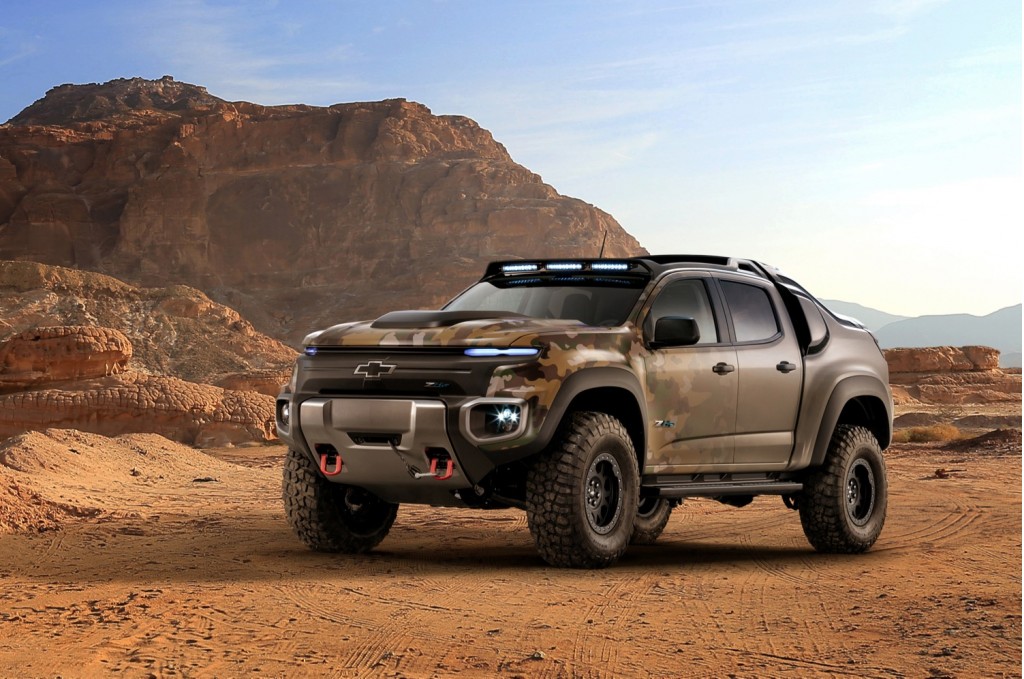General Motors said on Monday it will unveil two new battery-electric vehicles within the next 18 months, and will offer 20 electric and hydrogen fuel-cell vehicles globally by 2023.
The news came in a conference call for reporters with Mark Reuss, GM's executive vice president of global product development.
GM's announcement follows similar commitments by other large global automakers, VW Group included, and the news that China is evaluating an end date for sales of new vehicles with combustion engines.
DON'T MISS: All-electric Buick small SUV to be based on Bolt EV: report
"it all starts with the Chevrolet Bolt EV," Reuss said, the first electric car with more than 200 miles of range at a price under $40,000.
"GM believes the future is all electric," Reuss said firmly, whether a vehicle is sold at retail or to fleets, whether it's for commuting or towing.
But, he said, "we believe you need two flavors of electrification, battery-electric and fuel-cell electric," he said, depending on a customer's needs and demands placed on the vehicle.

Chevrolet Colorado ZH2 hydrogen fuel-cell vehicle
Fuel cells for specific markets
"We're going to see fuel-cell electric become part of the retail market," Reuss said, but also part of the commercial, military, and high-usage markets as well.
The company will deploy its next generation of fuel cells, from a joint venture with Honda, into those latter markets, he said.
CHECK OUT: GM goal: profitable, affordable electric cars built in big numbers
The company's next electric vehicles are being engineered "from the ground up based on Bolt EV learnings," Reuss said.
Reuss specifically cited a "multi-brand strategy," which would suggest that future electric vehicles will come not just from Chevrolet but also from Buick, Cadillac, and perhaps even GMC.
One of those is reported to be an all-electric replacement for the current Buick Encore subcompact crossover utility, now in its sixth model year.

2018 Buick Encore FWD 4-door Premium Grille
GM is working "faster than you've seen an automaker work," he suggested, and developing upcoming vehicles for "the fastest-growing segment of the market, crossover and SUVs."
Reuss cited a "structural battery pack with two different heights," which had been designed with "flexibility and agility around cells, and the markets in which they're made," as a core building block of future electric vehicles.
Even if GM doesn't manufacture battery cells, Reuss noted that GM has a great deal of proprietary intellectual property around the design of electric motors and power electronics and systems.
READ THIS: Has GM really 'already lost' the electric-car race to Tesla?
"The quickest way to decrease battery cost is to reduce the amount of battery used," he said. "It's a total vehicle solution, not just a cell or a structural pack solution," and the battery pack "incorporates a big part of the car's structure."
Lightweighting too plays a role in future electric cars. Reuss noted that every model line launched in the last several years by GM has been 250 to 400 pounds lighter than the model it succeeded.
While GM's vision is of an all-electric future—a phrase Reuss used several times during the announcement—its cars equipped with combustion engines will continue to get more fuel-efficient, to reduce their emission during the transition.

2017 Chevrolet Bolt EV
One reporter asked to what degree the announcement was based on recent Chinese steps to end the sale of cars with engines at some future date.
Reuss suggested that GM is already ahead of the Chinese requirements, and that China would continue to play an important role.
Several questions from reporters focused on the question of profitability: when did GM expect to start making money selling electrified vehicles?
This application of our next gen of electrification will be profitable," Reuss said. "End of story."
_______________________________________













